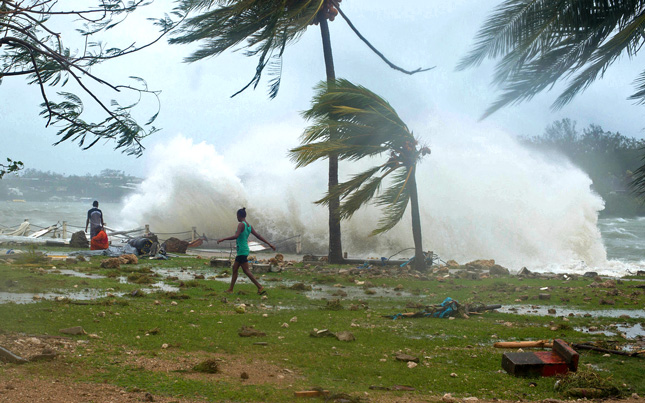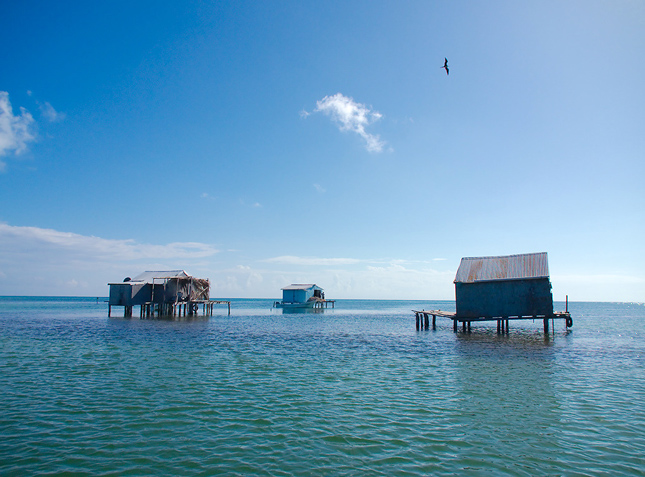-
Small-Island States Continue Long Crusade for Recognition of Climate Damages
›
“Even though small-island nation states generally are responsible for less than one percent of global greenhouse gas emissions, small islands are already expending scare resources on strategies to adapt to growing climate threats and to also repair themselves after they have hit,” says Maxine Burkett, associate professor of law at the University of Hawaii at Manoa, in this week’s podcast.
-
Islands: Climate Victims or Champions of Resilience?
›
In contrast to the common narrative of small-island states being among the most vulnerable to climate change, their growing experience in climate-compatible development, disaster prevention, and coordinating information and aid in new ways may be a valuable asset, said panelists at the Wilson Center on March 25.
-
Roger-Mark De Souza et al., Outreach
Re-Framing Islands as Champions of Resilience
›September 10, 2014 // By Wilson Center Staff
Island communities, particularly those from small island developing states, are often reported in policy documents, academic papers and mainstream media as being “most vulnerable” to climate change and disasters. While such a classification might serve to raise awareness of their plight, or be used as impetus for global action, this approach can also result in unintended (and damaging) attitudes and consequences. This is well-illustrated by recent off-the-record discussions with several donors and policy-makers who have inappropriately implied it is “too late” to “save the islands,” given their vulnerability to current and impending climate change impacts.
-
Jon Barnett on Climate Change, Small Island States, and Migration
›
Contrary to the iconic image of lapping waves submerging low-lying countries, few Pacific islanders are emigrating from their homes due to climate change, according to Australian geographer Jon Barnett of the University of Melbourne.
-
VIDEO: Jon Barnett on Climate Change, Small Island States, and Migration
›June 23, 2009 // By Wilson Center StaffNo one is currently emigrating from Pacific small island states principally due to climate change, according to Australian geographer Jon Barnett of the University of Melbourne. In this short interview conducted at the Woodrow Wilson Center, Barnett situates climate change’s potential future impacts within the broader social, political, and economic challenges for residents of small island states, reminding us that there is great physical and political diversity among these islands.
Stressing the mix of pushes and pulls that motivate people to move, Barnett suggests we examine existing patterns of migration to better understand how they will develop in the future. He emphasizes that climate change is most likely to push islanders to move due to declining food production and drinking water availability, rather than sea-level rise—despite the iconic image of lapping waves submerging low-lying countries. These sober reminders on the complexity of climate-migration links are worth keeping in mind when evaluating the plethora of new reports on the topic.
Showing posts from category small island states.







